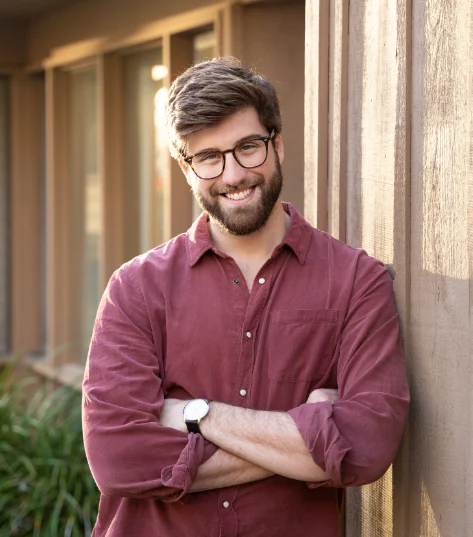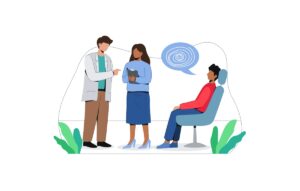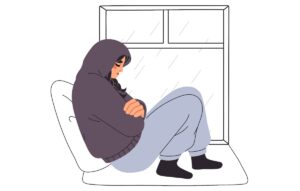What is an Intensive Outpatient Program?
An Intensive Outpatient Program (IOP) is a structured treatment option designed for individuals who need comprehensive support while maintaining the ability to live at home and manage daily responsibilities. Positioned between the 24/7 care of inpatient treatment and the less frequent sessions of standard outpatient care, IOP offers a balanced approach that helps individuals build recovery skills and maintain progress.
IOPs typically include a combination of individual therapy, group counseling, and skill-building sessions aimed at addressing the emotional, behavioral, and social aspects of addiction recovery. Participants engage in evidence-based therapies like Cognitive Behavioral Therapy (CBT), trauma-informed care, and peer support groups, all tailored to their specific recovery goals.
One of the key benefits of IOP is its flexibility. With multiple sessions scheduled throughout the week, individuals can continue working, attending school, or caring for family members while receiving the support they need. This makes IOP an ideal option for those transitioning out of residential treatment or seeking a robust framework to maintain long-term sobriety.
Key Benefits of IOP for Long-Term Recovery
Flexible Scheduling
Structured Support
Personalized Care
Community and Peer Connection
Recovery can feel isolating, but IOP emphasizes the importance of connection. Through group therapy sessions, participants build relationships with others who understand the challenges of addiction. This sense of community fosters mutual support, empathy, and accountability, creating a strong foundation for long-term recovery. Peer connections also provide encouragement and motivation, proving that no one has to navigate recovery alone.
With these benefits, IOP sets the stage for a healthier, more fulfilling future.
Common Therapies in IOP
At PRI Treatment Center, our Intensive Outpatient Program (IOP) incorporates a range of evidence-based and holistic therapies to address the diverse needs of individuals in recovery. These therapies are designed to promote healing, build coping skills, and support long-term sobriety.
How IOP Helps Maintain Long-Term Sobriety
Reinforcing Coping Strategies
IOP reinforces the coping strategies learned during earlier stages of treatment. Through individual and group therapy, participants continue to practice and refine skills such as stress management, emotional regulation, and conflict resolution. These strategies empower individuals to handle triggers and high-risk situations more effectively, reducing the likelihood of relapse.
Continuous Care and Relapse Prevention
One of the most significant benefits of IOP is the continuity of care it provides. Regular therapy sessions and check-ins offer consistent support, ensuring that participants remain focused on their recovery goals. IOP also emphasizes relapse prevention by helping individuals identify potential warning signs and develop actionable plans to address them before they escalate.
Strong Support System
Recovery is not a solitary journey, and IOP fosters a strong support system through peer connections and professional guidance. Group therapy sessions create opportunities for participants to bond with others who share similar experiences, offering mutual encouragement and accountability. Additionally, the guidance of experienced therapists provides a reliable foundation for navigating challenges and maintaining progress.
By combining these elements, IOP at PRI Treatment Center provides the tools, structure, and support needed for individuals to build a fulfilling, sober life.
Why Choose PRI Treatment Center for IOP?
Choosing the right Intensive Outpatient Program (IOP) is a critical step in your recovery journey, and PRI Treatment Center stands out as a trusted partner for long-term success. Our approach combines expertise, compassion, and flexibility to meet your unique needs.
Experienced Staff and Evidence-Based Therapies
At PRI Treatment Center, our team of licensed therapists and addiction specialists is dedicated to providing high-quality, evidence-based care. From Cognitive Behavioral Therapy (CBT) to trauma-informed approaches, we tailor our therapies to address the root causes of addiction and support sustained recovery.
Patient-Centered Care
We understand that no two recovery journeys are the same. That’s why we create personalized treatment plans that align with your specific goals, challenges, and circumstances. Whether you’re managing work, family, or other responsibilities, we adapt our IOP to fit your life.
Holistic and Supportive Environment
Beyond traditional therapies, we incorporate holistic modalities like mindfulness and stress reduction techniques to promote overall well-being. Our supportive, judgment-free environment fosters healing and encourages individuals to thrive in recovery.
Accessible and Mobile-Friendly Resources
We prioritize accessibility by offering flexible scheduling and mobile-friendly tools to make participating in IOP seamless. Whether you’re attending therapy or accessing resources, our program is designed to accommodate your busy lifestyle.
At PRI Treatment Center, we are committed to helping you build a strong foundation for long-term recovery. Take the first step today—contact us to learn how we can support you on your journey to sobriety.
Start Your Recovery Journey Today
Take the next step toward a healthier, fulfilling life with PRI Treatment Center’s Intensive Outpatient Program. Our flexible, mobile-friendly support makes it easy to balance recovery with your daily responsibilities. Whether you’re transitioning from inpatient care or starting a new chapter, our compassionate team is here to guide you every step of the way. Call us today at 858-281-4151 or visit the Contact Us page to schedule a consultation. Don’t wait—your journey to long-term sobriety starts now. Let us help you build a brighter future.

Dr. Warter received his doctorate in Clinical Psychology from The Wright Institute in Berkely, California, completed his Predoctoral Internship at USC’s Children’s Hospital Los Angeles, and was a Postdoctoral Researcher at USC’s Institute for Integrative Health and Wellness. Dr. Warter has also been trained at UCSF School of Medicine, Kaiser Permanente, and in community clinics in rural, underserved communities in Argentina and Paraguay. Dr. Warter has received training in providing parents with guidelines to help prevent behavior problems and enhance communication skills and strategies to promote children’s social, emotional, and academic competence. Dr. Warter has also published and presented at the University of Naples and the University of Buenos Aires on subjects related to Third Culture Kids and the impacts of Social Media on Personality and Self Esteem.










